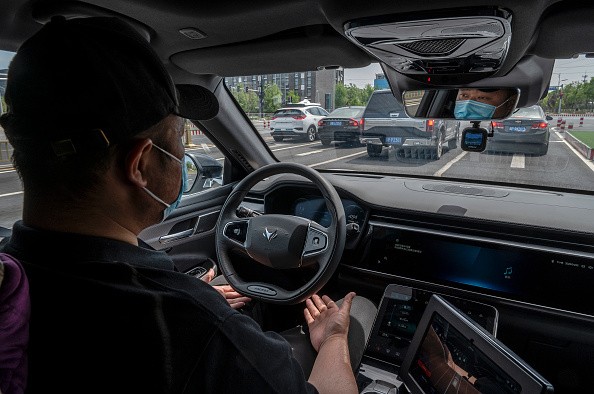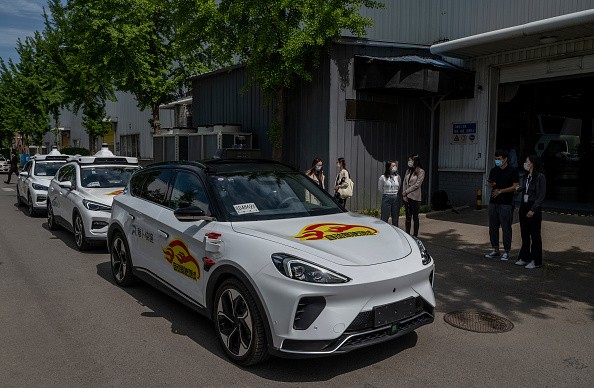Driverless taxi permits of Baidu and Pony.AI have been approved in the capital city of China, Beijing, giving commuters access to self-driving cars.
As such, the driverless robotaxis of the Chinese tech giant Baidu, and the autonomous vehicle startup, Pony.AI, will start hitting the streets of Beijing.

Driverless Taxi Permits
It is a major move for the Chinese nation as it further accelerates the commercialization of self-driving vehicles in the country, as per a news story by Nikkei Asia.
It is worth noting that the permits for both Baidu and Pony are the first two licenses that give the two firms the authority to operate their driverless taxi services in the streets of China.
Baidu Driverless Taxi in Beijing
In fact, on the same day of the permit approval, the autonomous ride-hailing brand of Baidu, Apollo Go, started offering rides to general passengers.
The news outlet noted that the permit still does not allow the tech giant to charge its passengers for robotaxi rides.
Baidu did not have any qualms about it. In fact, the chief security operation officer and vice president of the Baidu Intelligent Driving Group, Wei Dong, disclosed that "Apollo Go is not currently targeting profitability."
Dong further said in a statement to Nikkei Asia that their current goal is to introduce the new self-driving option to the general public, making them more comfortable with autonomous tech.
Pony.AI Robotaxi
On the other hand, Pony.AI has also received its robotaxi license in the Nansha district of Guangzhou, giving it the authority to operate at least 100 self-driving taxis.
On top of the new permit, the capital city Beijing has given the auto startup, wherein Pony.AI will initially run four robotaxis, as per a news story by Engadget.
Meanwhile, the fleet of Baidu in Beijing consists of 10 self-driving vehicles.
Like Baidu, Pony.AI has yet to get approval to charge its passengers in Beijing.
Read Also : Cruise, Walmart Expands on Self-Driving Delivery Service in Arizona; Soon Available to Scottsdale
Driverless Taxis in Beijing
In the meantime, while both firms could start hitting the roads of the China capital, they are not authorized to charge for their rides.

Beijing's government also requires the driverless taxis to have one staff inside the self-driving vehicle still to observe and ensure that there are no issues merely. Despite that, these folks do not have to sit in the driver's seat.
Apart from these limitations, the autonomous taxi service could only fetch passengers at specific public pick-up and drop-off points, such as parks and subways.
Related Article : UK Government to Allow Drivers to Watch TV in Self-Driving Cars As Long As They Are Ready to Take Control
This article is owned by Tech Times
Written by Teejay Boris
![Apple Watch Series 10 [GPS 42mm]](https://d.techtimes.com/en/full/453899/apple-watch-series-10-gps-42mm.jpg?w=184&h=103&f=9fb3c2ea2db928c663d1d2eadbcb3e52)



